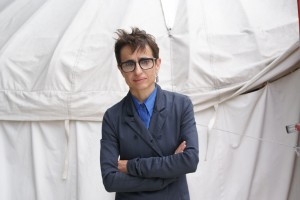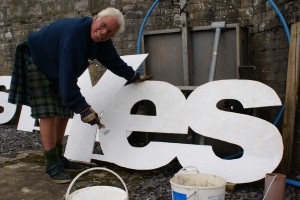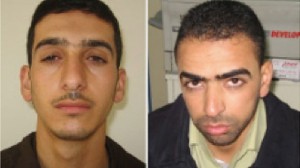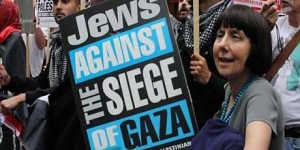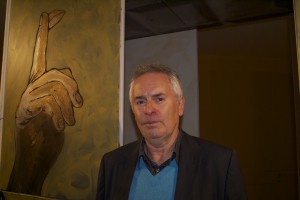
Hans Weigand in front of his Majakovski installation
Vienna’s Jewish Museum cooperated with the Russian NGO Memorial in an art project about memory in Moscow.
An idyllic image, a view from a window. But a closer look reveals barbed wire on the fence. The embroidery was created by a Gulag inmate who probably did not survive. The art work landed in the collection of the Russian human rights organization Memorial which deals with the memory of the Gulag. Russian-Austrian artist Ekaterina Shapiro-Obermayr picked this artefact to inspire her work for the exhibition „Tales of 2 cities“ which opened last week in Moscow.




